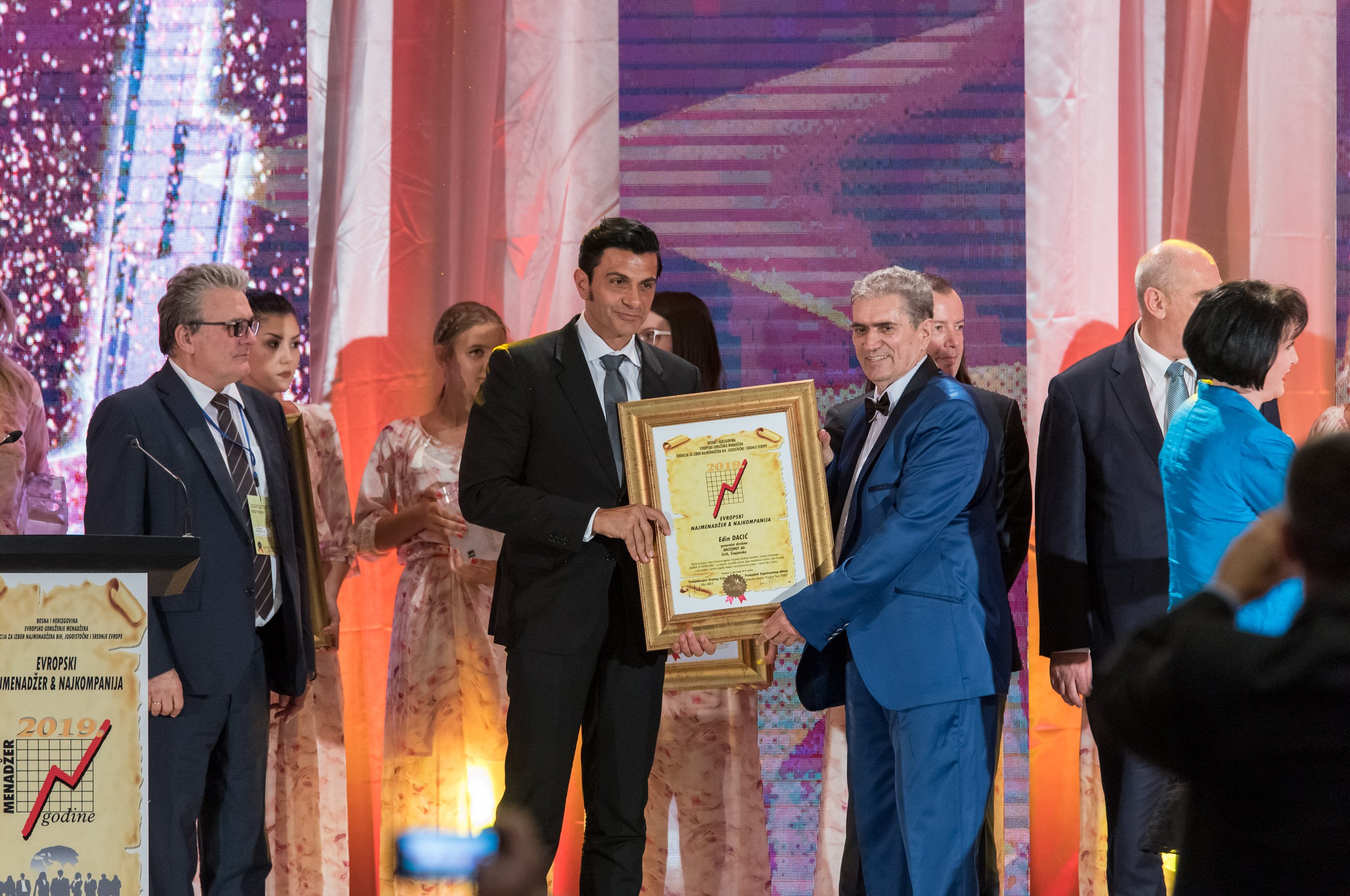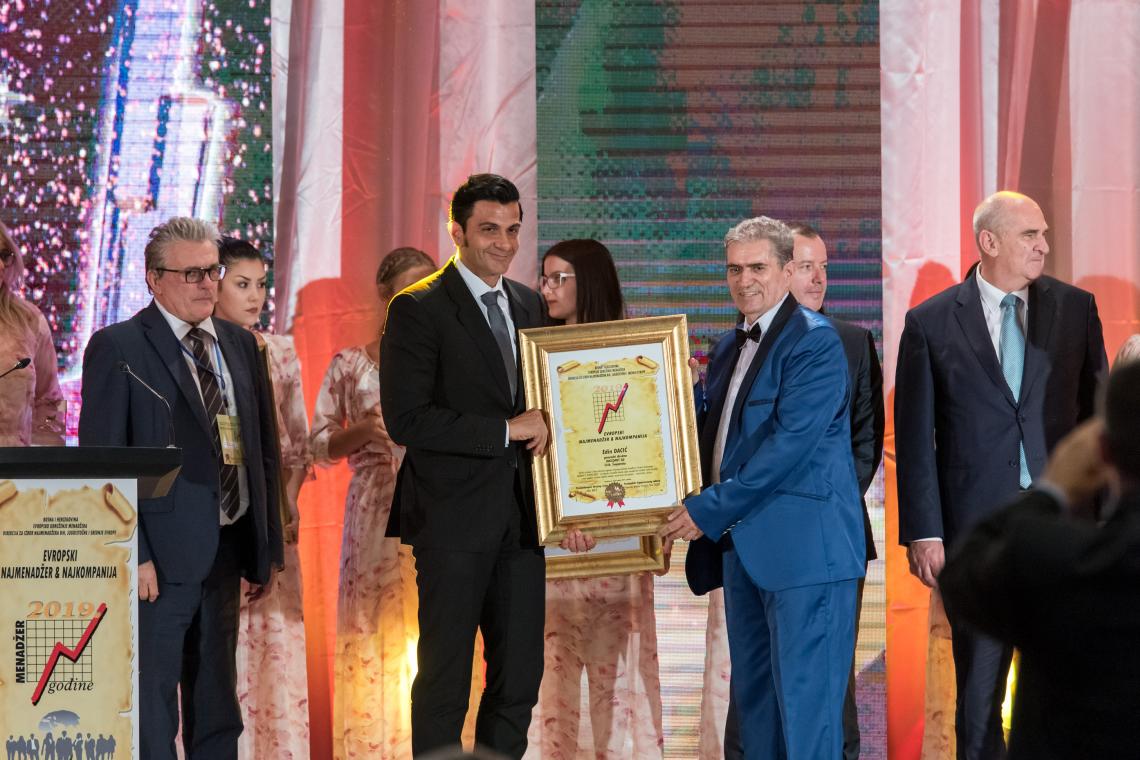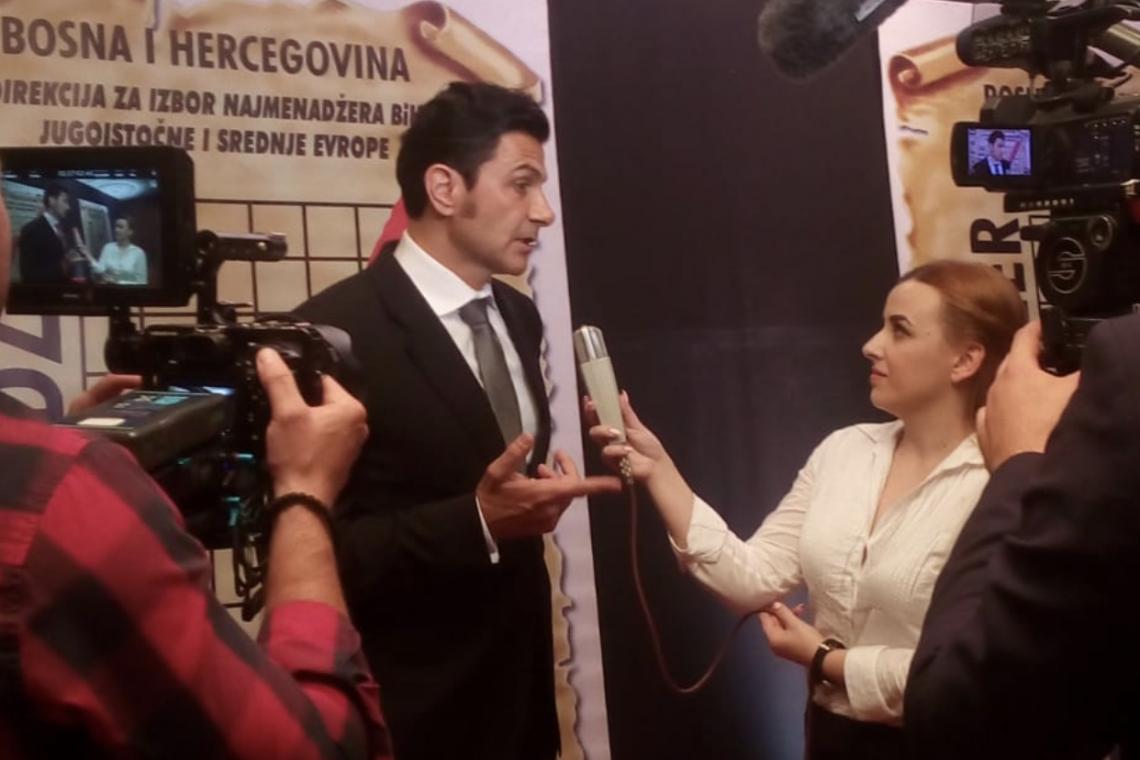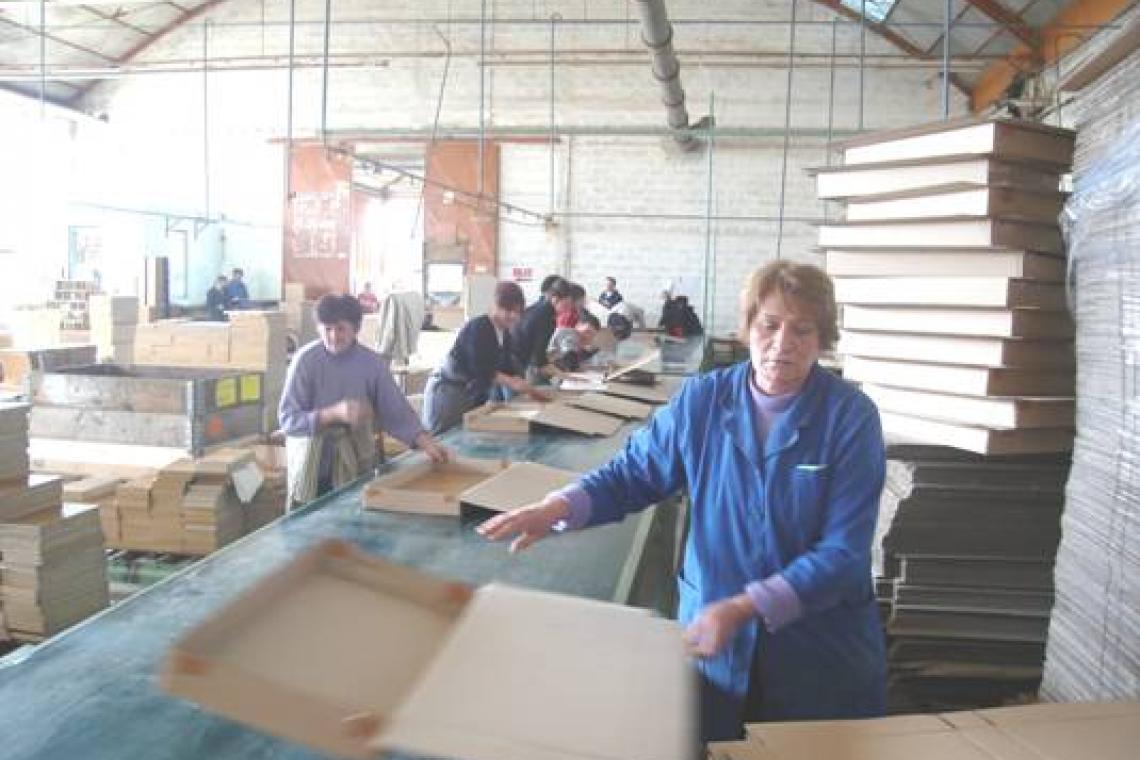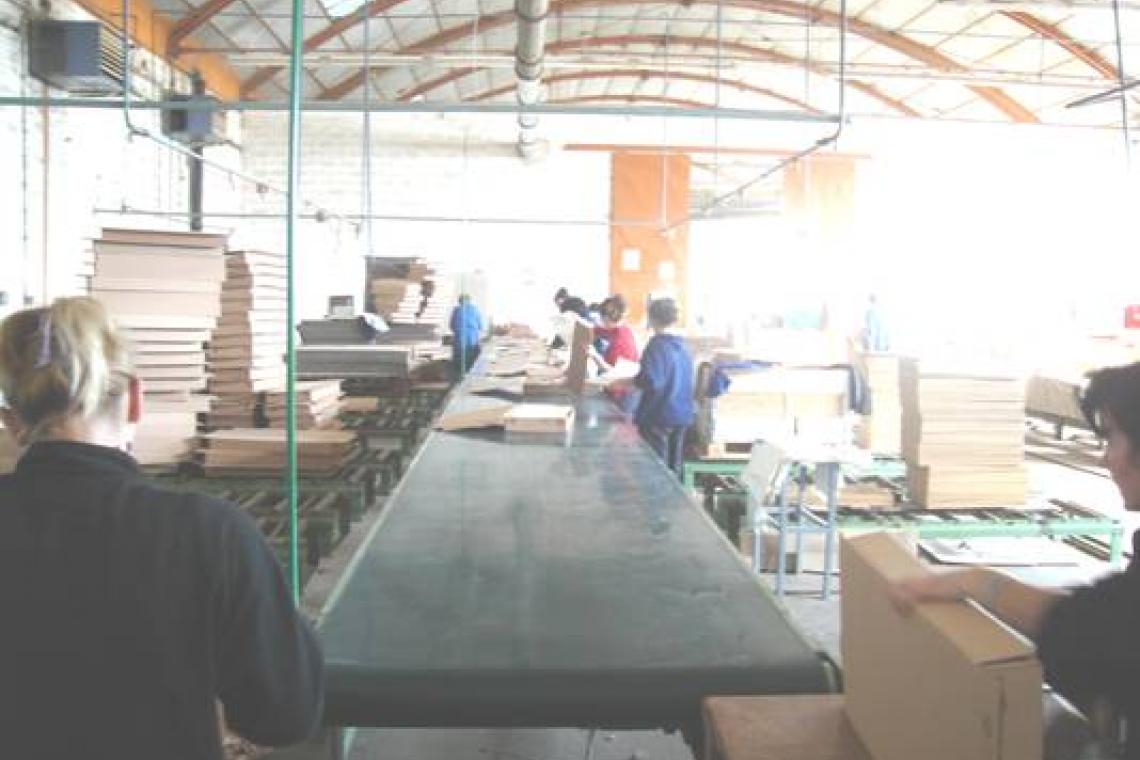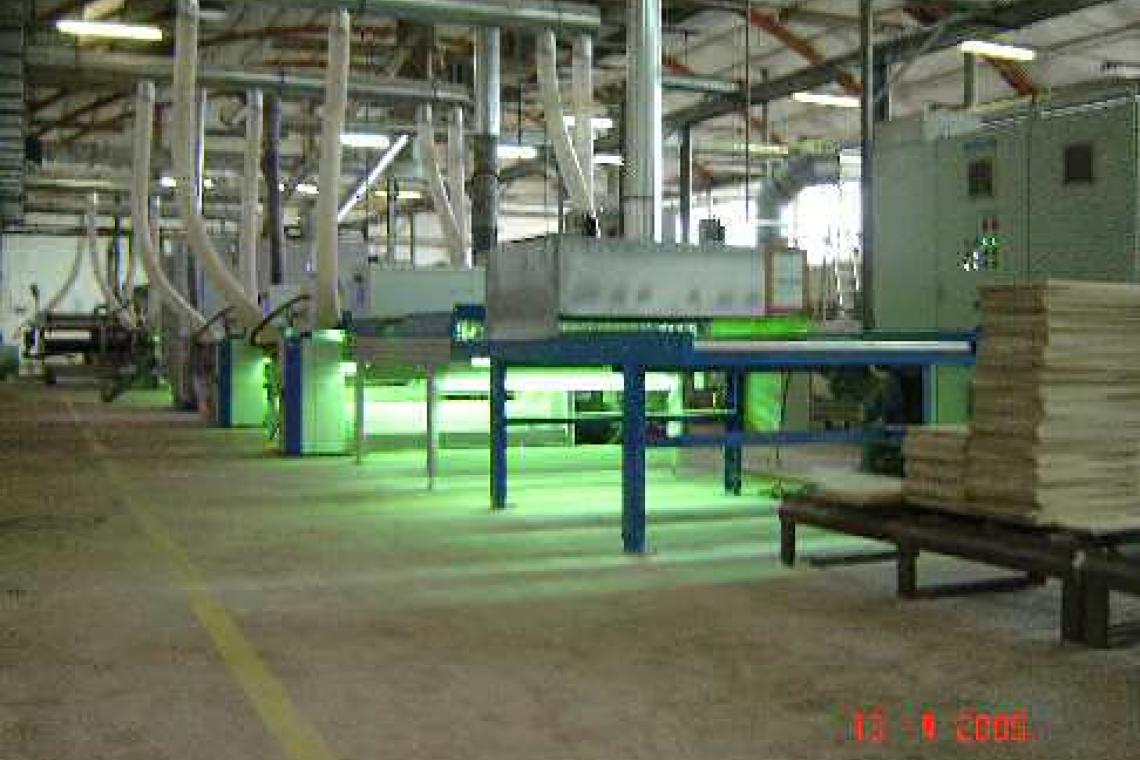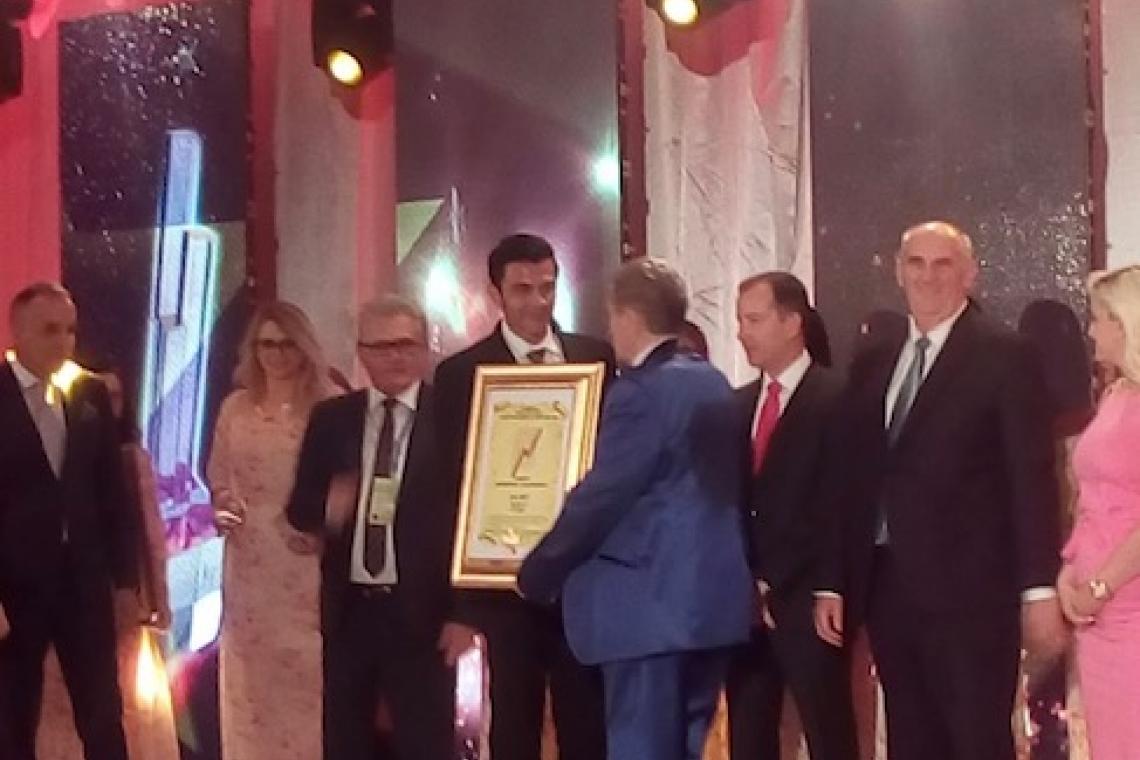He is the founder and owner of the company Daccomet AG, which possesses furniture production plants in Bosnia and Herzegovina and Serbia, which supply IKEA. He graduated in political economy with a major in international relations from the University of St. Gallen. The occasion for the interview was the lifetime achievement award for Edin Dacić, which was bestowed upon him in recognition of his success in developing the company Fabrika namještaja Standard Prnjavor in Bosnia and Herzegovina and his engagement in organisations that conduct strategic planning of the economy in Bosnia and Herzegovina, connecting the Bosnian and Herzegovinian diaspora with development projects in Bosnia and Herzegovina and his engagement in the establishment of economic forums and conferences. The ward was assigned by the expert jury of the Independent European Agency for the Selection and Promotion of the Most Successful Businesspeople and Companies from Southeast and Central Europe in 2019. Edin Dacić is a member of the Steering Committee of SIPPO, the Swiss Import Promotion Programme, a member of the Steering Committee of the Union of Associations of Employers of Republika Srpska, a member of the Steering Committee of the Swiss and Serbian Chamber of Commerce and the president of the Steering Committee of i-diaspora in Switzerland.
- What was your reaction when you received the lifetime achievement award, given the fact that you are far from the end of your business career?
Everyone asked me whether I had the intention to retire or whether I was about to die (laughter)… This award means a lot to me because it is a recognition of not only my business engagement but also of my engagement at organizations through which I am trying to contribute to economic changes in Bosnia and Herzegovina. I am always trying to motivate others to work together and to engage in projects in Bosnia and Herzegovina because there are so many economic potentials that must be activated and used. We have to work, we have to help, and that is the essence of my engagement.
- Your company Standard is located in Prnjavor, in Bosnia and Herzegovina. What exactly are its business activities?
The company Standard in Prnjavor, which is a subsidiary of Daccomet AG, produces furniture for IKEA. The furniture is produced and sold in compliance with their design. When we started, there were only 65 employees at the company, which had 296 employees before the war, when it operated as part of Šipad, the largest furniture producer in Yugoslavia, with more than 80,000 employees. In 2010, we exceeded for the first time the number of employees that the company had before the war, we namely had 300 employees. In 2018, the number of employees increased to 400, with a turnover of more than 17.5 million EUR, which was a record for us! We grew every year by 10-15%, except for one year, because a buyer did not replace an article on time. We are trying to purchase everything in Bosnia and Herzegovina, but it is not always possible. For example, nobody is producing particleboards in Bosnia and Herzegovina anymore. Before the war, there were four such factories in the country. Today, however, there are none. We, therefore, buy them in Croatia and Italy, to a certain extent also in Hungary.
Cooperation with IKEA in Bosnia and Herzegovina
- How did it even happen that you established a company in Bosnia and Herzegovina?
When I was a 22-year old student, I established the company Daccomet AG by using the money I borrowed from my father. Back then, it was obligatory to do a six-month practical training at the University of St. Gallen and I thought that it would be a chance to start working as an entrepreneur instead of simply doing the practical training somewhere else. It was in 1990, the period of Marković's reforms. NZZ wrote about Marković's visit in Switzerland and commented that, should his reforms be implemented, a new economic tiger would be born in the Balkans. For me, it was a signal of great reforms and the birth of a great economy, and I wanted to be part of that. Unfortunately, we all know what happened in Yugoslavia… In the beginning, I worked on financing the exports of production companies in Croatia, but I realized that it could not be competitive in the long run. My business partners were showing me how they measured the competitiveness of suppliers or potential suppliers and which regions were able to produce at much lower costs. One of these regions was also Bosnia and Herzegovina, and at the end of the 1990s, I traveled to Bosnia and Herzegovina and was searching for potential partners. As of 2000, Daccomet therefore financed and provided advisory services to 7 IKEA suppliers from Bosnia and Herzegovina and helped them with the purchase of raw materials. I soon realized that it was too big and that I would not be able to cover all of that. It was not an easy period for me since I was experiencing an identity crisis. I had always thought that, given the fact that I speak our language, I would be able to understand all of that, that it would be easy to manage and that I would be able to do something and help with the development. I realized that language was no problem at all, but that the problem lied in different ways of thinking. We speak the same language, but we do not understand one another!
- What kind of differences were there?
I met many people in Bosnia and Herzegovina in the field of business, from CEOs and managers to different politicians. Their stories and explanations were not realistic. At the same time, immediately after the war, there had been a shift in values, the state was not strong, there were illegal activities… While there was still Yugoslavia, my parents brought me up as a Yugoslav citizen, telling me that one day we would go back there, because we were in Switzerland only for a limited period of time. I always asked myself whether I was a Swiss or a Yugoslav. When Yugoslavia disappeared, the question itself disappeared, too, especially since I am a child from the so-called mixed marriage, with parents of different ethnic origins. However, this identity crisis in Bosnia and Herzegovina caused by a lack of understanding and differences between me and my partners was a particular problem back then, because I could understand the language, but I did not understand the people at the end of the 1990s. I, therefore, focused on the company Standard from Prnjavor, which produced furniture, since I had excellent cooperation with its CEO, based on openness and fairness. We bought this company in 2004, when the process of privatization started since the acquisition was a pre-requisite to start investing in it so that there would be clear ownership documents, which was a requirement for the cooperation with IKEA. More than 10 million EUR has been invested in this company so far.
- You live with your family in Zürich, and the seat of the company Daccomet AG is also in Zürich, whereas the production plant is located in Prnjavor, Bosnia, and Herzegovina. How do you manage to balance your life in Switzerland and Bosnia and Herzegovina?
I am trying to keep a critical distance when it comes to operations in Bosnia and Herzegovina in order to be able to work better. I even considered moving to Bosnia and Herzegovina for several years to speed up the growth of the company and maybe also contribute to some economic changes in the country, but, to be honest, I was afraid of it. With my income, I could have a very nice life in Bosnia and Herzegovina, but I was afraid that I would then lose my driving force and critical thinking, that I would blend in the environment and that I would become unable to set new goals. I, therefore, decided against it. I really like the people there, I also have an emotional bond to the country, everything is attracting me, I like it there, but I need the driving force and critical thinking to be able to develop it all further and push forward.
Potentials for doing business in Bosnia and Herzegovina
- What does your stay in Bosnia and Herzegovina look like? How do you see the way of doing business and potentials in Bosnia and Herzegovina?
To be honest, in my opinion, everything is too slow there. I truly see enormous potentials and everything could develop much faster in Bosnia and Herzegovina. A great problem in the economy is middle management. We had been trying to attract young management personnel in Prnjavor. The problem lies in the fact that many middle-aged persons lack practice due to the war or they were unable to complete their training or find a job. We then decided to hire several young university graduates. We have seen that these young people work differently because they belong to this digital generation, very well-educated and unburdened. We sent them to all possible seminars because they need practice and training for new positions. At my initiative, the Faculty of Wood Processing from Biel developed leadership and skills development training (LSDT) and organized training for these young persons. SDC bore around 90% of training costs. LSDT was open for interested persons from the region and lasted for three years. In our company in Prnjavor, we had students from the Faculty of Wood Processing from Biel, who did their practical training and spent around 9 months in Bosnia and Herzegovina.
- What was your motivation to engage in connecting companies from Switzerland and Bosnia and Herzegovina and include the Bosnian and Herzegovinian diaspora in the development of Bosnia and Herzegovina?
The Bosnian and Herzegovinian diaspora's capacities in Switzerland are enormous! They can be very useful for Bosnia and Herzegovina – that is my motivation! I am one of the founders of i-diaspora in Switzerland in 2015, which gathers the diaspora of Bosnia and Herzegovina in order for them to transfer their knowledge and Swiss standards to Bosnia and Herzegovina and to be a driving force for the economic growth of the country. They understand the culture, have the contacts and know what is in demand. We would like to motivate the diaspora not to only send money, but to also start projects and establish their own businesses. Many people in Bosnia and Herzegovina used to tell me that what I wanted to do was impossible, that there were no conditions for something like that, that something like that might function in Germany and Switzerland, but that it was impossible in Bosnia and Herzegovina. Maybe a lot of nerves, effort, sweat, and work are needed, but it is possible!
- What are your future plans regarding Bosnia and Herzegovina?
Now we are investing in technology and expansion. We are still growing. I will not say that we are still at the beginning, but our potentials are much bigger and we would like to use them.
- Have you encountered difficulties with the local administration or business and political obstacles?
A great danger is a fact that people are leaving Bosnia and Herzegovina in masses, especially well-educated people, and that they have no intention to come back. Some things would need to be resolved in order to make the country attractive for companies, but they are not being solved due to a lack of political will or because of the fact that international pressure is not sufficiently strong. This is the reason why all these unions of associations of employers exist so that they can contribute to changes. I truly had no problems with corruption, although many complain that they did, I have not encountered it. We comply with the law, because we are controlled by our foreign customers, so I guess that we have not encountered such persons for this reason.
- When you are staying in Bosnia and Herzegovina, is it purely a business matter for you?
I enjoy all of it. Sometimes it is strenuous, but I enjoy spending time with persons in Bosnia and Herzegovina, I like creative persons, persons who wish to develop their business and use the existing potentials. Such persons give me lots of energy. In my case, there is also a strong emotional bond to Bosnia and Herzegovina, I am delighted with the humor and cordiality of people! A disadvantage is the mentality of the people, who are used to the fact that all decisions are taken top-down. They do not feel that there is a democracy, they do not believe that they can change something, that they can impact their destiny and determine their lives, and that is not good.
- Why are you so attached to Bosnia and Herzegovina, you grew up in Switzerland, you could have built a career here… Why have you invested so much energy and time in Bosnia and Herzegovina?
Many say that leverage is much bigger in our country than in Switzerland. If you wish to achieve something big in Switzerland, you have to invest much more, to ensure innovations, the risks are higher, etc. In our country, all of this is much smaller, and if one manages to face certain challenges, so much can be achieved! And it is much merrier! If you ask me, my soul is there. This bond was created through my parents, but also my personal experience. My wife is Swiss and she always tells me, ''you need several days for your soul to come back home after a trip. You are physically here, but your soul is still there''. Our friends, who accompanied us during a visit to the Balkans, told my wife that I was different there.
Links:
Furniture factory Standard in Prnjavor: https://standard-prnjavor.com/
Best manager: https://najmenadzer.com/najnovije/?post=izabrani-najbolji-menaderi-ove-regije-evrope-za-2019
DW: https://www.dw.com/bs/edin-da%C4%8Di%C4%87-balkanska-karijera-iz-snova/a-38513029-0

